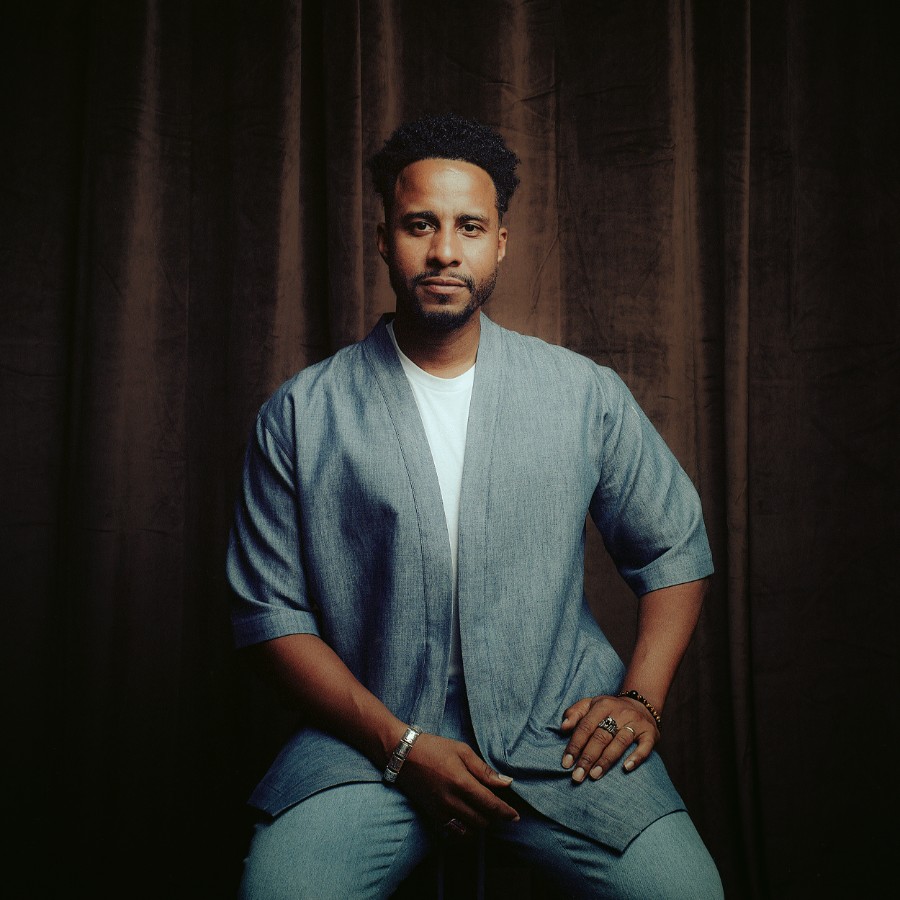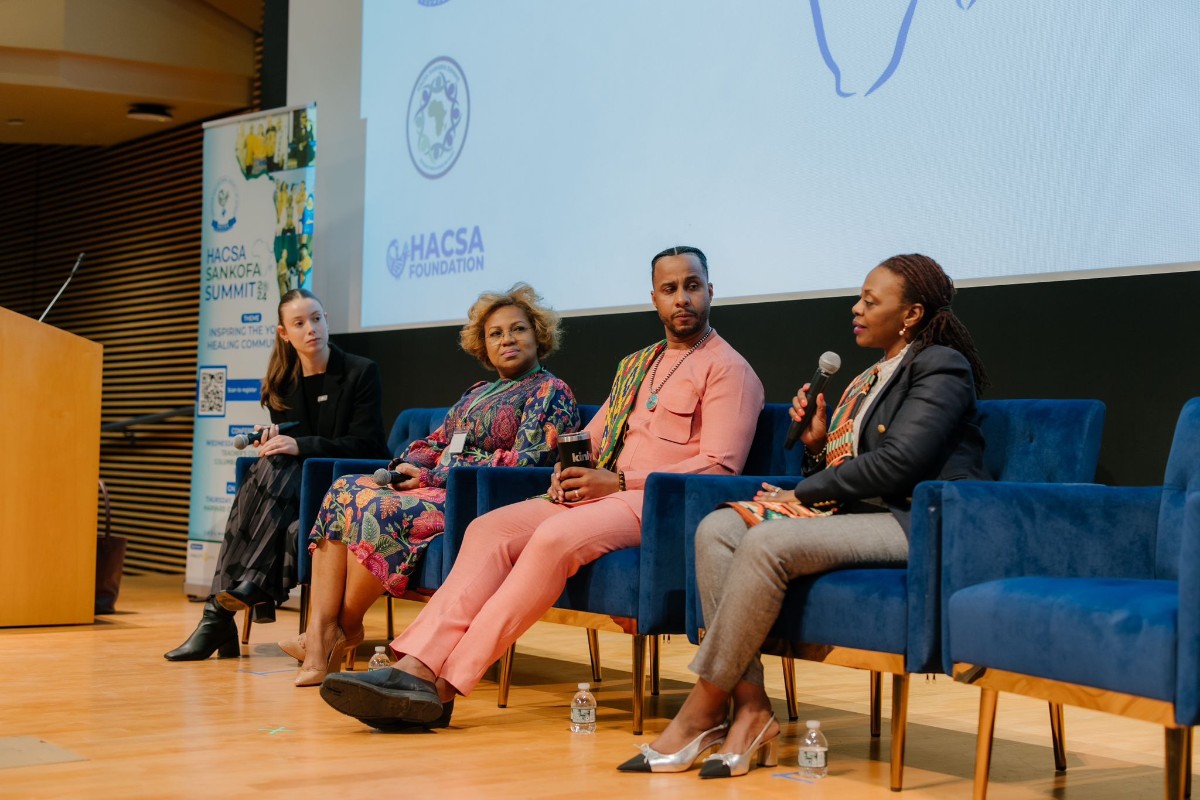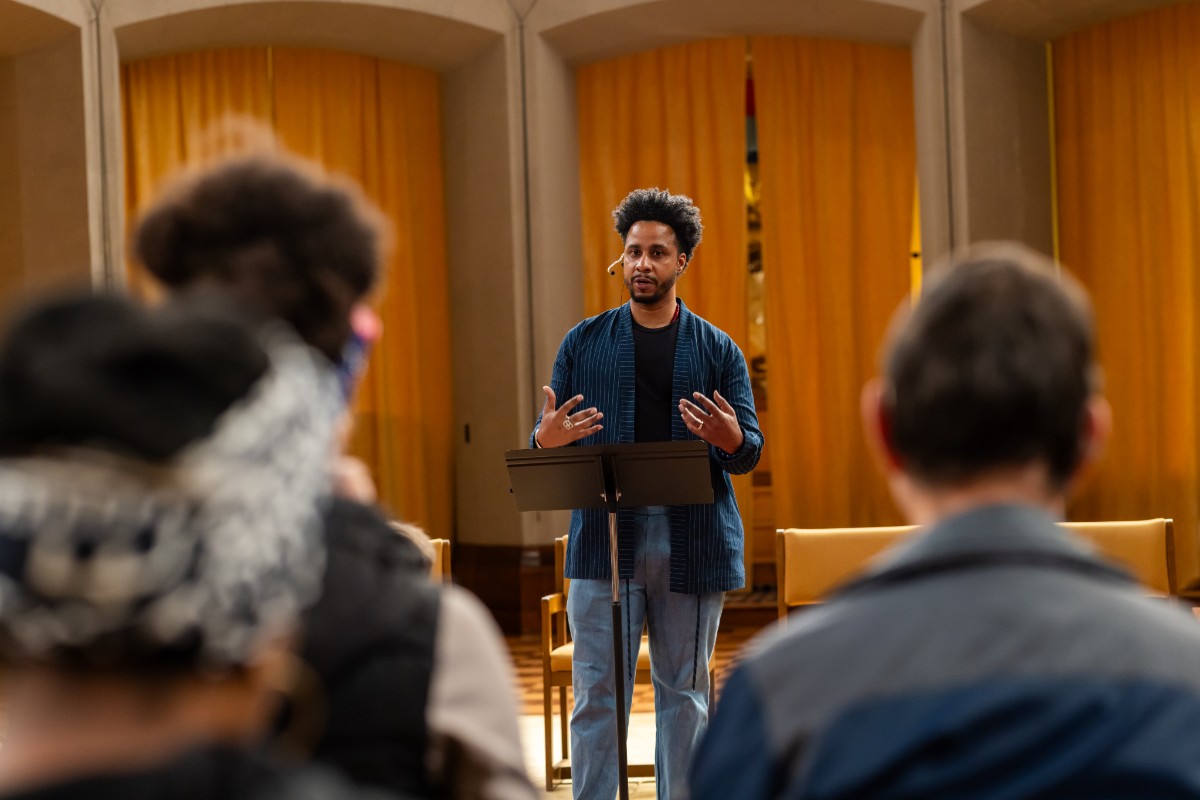When Angel Acosta (Ed.D. ’20) graduated from TC, the world was marked by uncertainty and challenge due to the global pandemic. But for Acosta, he left TC hoping to do more to meet his community where they were during such a critical time.
Determined, he looked to his doctoral dissertation for inspiration, which emphasized healing-centered education as an essential framework for educators, especially during times of crisis. “As a society, we are more prepared than ever to discuss healing-centered education as a holistic paradigm — not merely as an approach but as both a practice and a philosophy," Acosta shares.
Encouraged by the positive response he received from his mentors, such as TC’s Yolanda Sealey-Ruiz and Christopher Emdin and Celia Oyler, Acosta decided to take the next step in putting his theory into practice. He launched virtual community grounding sessions to support his local community through the pandemic and mental health concerns. Over six months, more than 2,000 participants attended the restorative spaces.

Angel Acosta (Ed.D. ’20), Founder and Chair of the Acosta Institute. (Photo courtesy of Acosta.)
“Every Thursday evening, we came together to meditate, talk and hold space for each other in this virtual circle,” “It was what the community needed during this time of transition, isolation and hardship” said Acosta, who was quickly inspired to launch a series of free, accessible, community-centered healing education courses and practicums, providing a closer look at the understanding of restorative practices and healing-centered education theories for educators, therapists, consultants and activists.
It was only a matter of time after Acosta founded the Acosta Institute, named after his paternal family lineage in Santiago, Dominican Republic, to serve the community in a more holistic way. The Institute has since been recognized by the W.K. Kellogg Foundation, which recently provided a multi-year grant to amplify healing-centered education at the national level. Today, the Institute works with renowned global partners like SYPartners and The House of Beautiful Business to implement healing-centered practices and cultures throughout organizations. Notably, the Institute debuted one of its first projects, Wounded Healers, a healing-centered, multimedia community storytelling project to cultivate the wellbeing of educators, at TC’s Macy Art Gallery.
Being a TC alum means I'm forever connected to a legacy of people who have leveraged the best theories and practice in relation to education. It means being a steward of facilitating learning environments that transform people's lives and, eventually, transform the world.
The Institute’s latest project, The PolyOpportunity, in partnership with the House of Beautiful Business and the The Holon Institute, aims to engage leaders, educators, scholars, and others around the world more in the “poly-crisis”— multiple crises occurring at the same time, amplifying each other's effects — regarding today’s critical societal issues like climate change, political polarization, racial literacy and more. The project, described a “12-week digital learning journey,” includes a robust speaking tour and series of virtual forums to reimagine tangible solutions to today’s most pressing issues.
“We need to find ways to reframe the global crises before as opportunities. How do we remain grounded, hopeful and resolute in the world in constant flux,” explains Acosta. “Part of the solution is being tethered to creative communal responses like the PolyOpportunity.”

TC's Angel Acosta and Yolanda Sealey-Ruiz shared remarks at the HACSA Sankofa Summit, a vibrant celebration of culture from the African diaspora, held at Teachers College last summer. (Photo courtesy of Acosta)
Among the many additional initiatives facilitated by the Acosta Institute is the 2024 HACSA (Heritage and Cultural Society of Africa) Sankofa Summit, a vibrant celebration of culture from the African diaspora. Held at Teachers College last summer, the event brought together attendees from around the globe for an enriching experience that featured keynote speeches, panel discussions, film screenings and a gala dinner dance. The summit aimed to “reunite, reconcile, and evoke healing in communities through reflection and consciousness while sharing creative and innovative strategies among participants.”
“Teachers College played a pivotal role in hosting the organization's first-ever Summit on U.S. soil, which was really special,” Acosta reflects. “It provided an opportunity for myself and many others to connect with the African diaspora through a healing lens.”
This year, the TC alum has further expanded his international partnerships through his role as a mentor and Director at the Garrison Institute—a nonprofit focused on promoting resilience and healing. Recently, he was invited to become a Fellow and deliver a keynote address at the Centre for Contemporary Studies, founded by his mentee, Yuki Imoto, at Keio University in Japan.
Acosta has also recently expanded his work to Latin America, launching the Acosta Institute Latin America to support purpose-driven entrepreneurs, promote healing-centered education, and provide ethical AI education in Spanish-speaking communities. This expansion furthers his mission to create transformative learning environments by integrating well-being, equity, and resilience into education and professional development across diverse cultural contexts
“I had the distinct honor of giving the closing keynote at the Centre’s first-ever symposium, which explored contemplative education in the age of artificial intelligence,” says Acosta, who was later offered a position as Fellow at the Centre. “This experience was truly one of the highlights of my career, allowing me to engage with Japanese scholars on how they can integrate healing-centered practices into their educational frameworks.”
Yet no matter where Acosta’s international endeavors lead him next, the TC alum assures that Teachers College will always “feel like home.”
